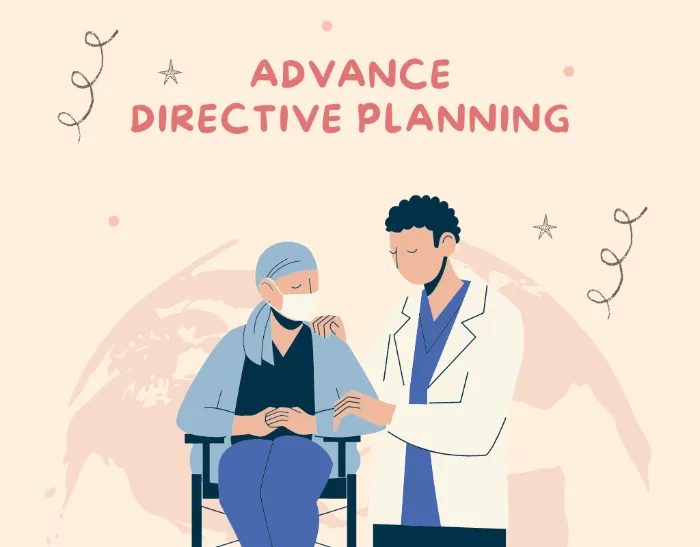What to Think About When Drafting an Advance Directive
An advance directive refers to a document or set of documents that allow you to express your healthcare wishes if you were in a circumstance where you could not do so yourself.
Types of Advance Directives
One document, called a Health Care Power of Attorney in Arizona, allows you to appoint a person to make healthcare decisions for you. This document sometimes has different names in different states, including Durable Power of Attorney for Healthcare Decisions, Medical Power of Attorney, or Advance Medical Directive.
Another document, a living will, allows you to state your preferences relating to end-of-life healthcare. In some states it’s also called a Declaration or an Advance Medical Directive.
There are also other types of documents like a Physician Orders for Life-Sustaining Treatment (POLST) that outlines healthcare plans and goals for seriously-ill patients. Some states also have a Mental Health Power of Attorney to appoint an individual to make mental healthcare decisions for you in a situation you are unable to make them for yourself.
Who needs one?
If you’ve ever been to the hospital, the administrator or nurse has probably asked you if you have a living will or advance directive. But advance directives are not only for older adults or those with serious medical conditions – advance directives allow anyone to prepare for sudden end-of-life situations. Healthcare providers are required to respect these documents, which are legally binding.
Without an advance directive, your loved ones might disagree or be confused over the decisions you would want them to make during moments of grief, and you might receive medical care that you would not have wanted. By planning ahead, you can explicitly express your healthcare wishes, help your medical team and loved ones make decisions in line with your wishes, and appoint someone to make decisions on your behalf.
What kinds of issues are addressed in an advance directive?
Before you take the steps to start drafting an advance directive, take some time to think about (1) who makes decisions (2) what types of decisions, and (3) what guidance do you want to provide for the decision maker?
When deciding on who to appoint as an agent – the person who will make healthcare decisions on your behalf – take some time to think about the following:
- Do you trust this person to make the best healthcare decisions for you in line with your wishes and values?
- What specific decisions can this person make for you and what decisions they can’t?
- Do you want to name an alternate in case this person is unable to?
- The proxy cannot be someone part of your medical team, and should be an adult.
A living will allows you to explicitly express the type of end-of-life healthcare you want. It goes into effect if you are terminally ill or in need of life-sustaining treatment. Here, you can state the kind of medical care you want, whether you want medication for pain management (and what types), and make decisions about organ donation. End-of-life care can involve a number of different procedures and treatments, and you decide what guidance you are providing:
- Do-Not-Resuscitate (DNR) orders indicate that if a person’s heart stops beating, CPR should not be performed. Decide if in cases where your heart stops beating, you would want attempts to be resuscitated.
- Do-Not-Intubate (DNI) orders express a wish to not have a breathing tube inserted in the event of a life-threatening situation. Mechanical ventilation/intubation helps you breathe in cases when you can’t on your own. You can also express how long you would want intubation for.
- Dialysis is a procedure that diverts your blood to a machine that removes waste from your kidneys when they are unable to on their own. Patients usually undergo the process 2-3 times a week. You may choose to stop dialysis, or specify the length of time to undergo the treatment before stopping it.
- Artificial nutrition and hydration is done through a tube or intravenously. Decide if you want this treatment and for how long if you were unable to eat and drink on your own.
- Medications can help alleviate pain, but some, like morphine, can also pose risks to your health. What types of medications would you want, and for how long?
- Organ donation: decide if you want to donate your organs and/or tissues at the time of death and for what purposes (research, transplant, etc.)?
Speaking to your loved ones, your physician, and attorney can help you make decisions about the kind of care you want to receive. The process of deciding on your healthcare wishes and drafting an advance directive can be complex. If you would like more guidance or to learn more about advance directives, please call Yaser Ali Law at (480)-442-4175 or fill out our contact form here.
